Iran Press/ Commentary: Forty days after the great incident of Ashura and the martyrdom of Imam Hussain (AS) and his faithful companions, the caravan of prisoners of this great tragedy returned to Karbala. After a long time of captivity, hardship and alienation, now the survivors of that epic and heroic uprising had come to the holy shrines of their loved ones to once again see the scene of that cruel crime and mourn for them. With this description, these apparently captives, who were led by Imam Sajjad(AS) and Hazrat Zainab (SA), were proud of their martyrs. Because with vigilance, courage and tact, during this time they were able to convey the enlightening message of this divine uprising to the ears of the people.
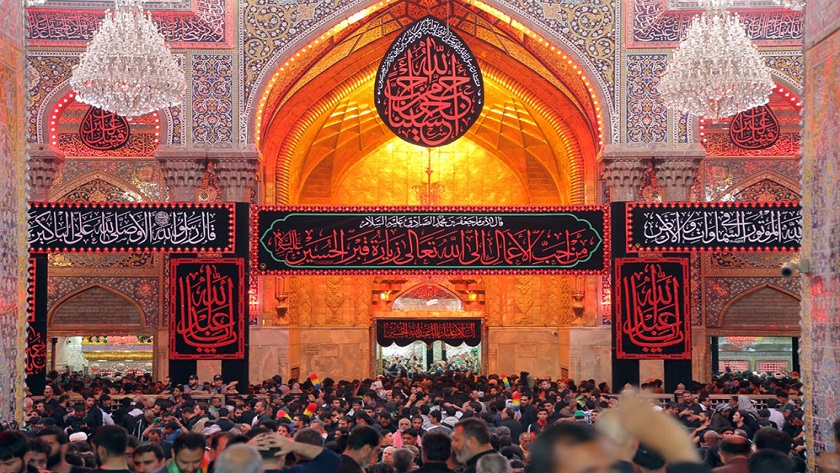
This day, the 20th Safar of the year 61 AH, is called Arbaeen meaning the fortieth, because forty days had passed since Imam Hussain's uprising in Karbala. Every year those who are passionate and devoted to Ahl al-Bayt (AS) and the leaders of that fateful uprising, on the anniversary of Arbaeen, hold a mourning ceremony, the most important and magnificent of which, without a doubt, is the huge procession of the lovers and mourners of Hussain (AS) to Karbala. Millions of passionate, devoted pilgrims from different countries, from the cities of Iraq, especially the holy city of Najaf, the tomb of Hazrat Ali (AS), go to Karbala on foot to visit the magnificent and enlightened tomb of Hussain Ibn Ali (AS) on the day of Arbaeen.
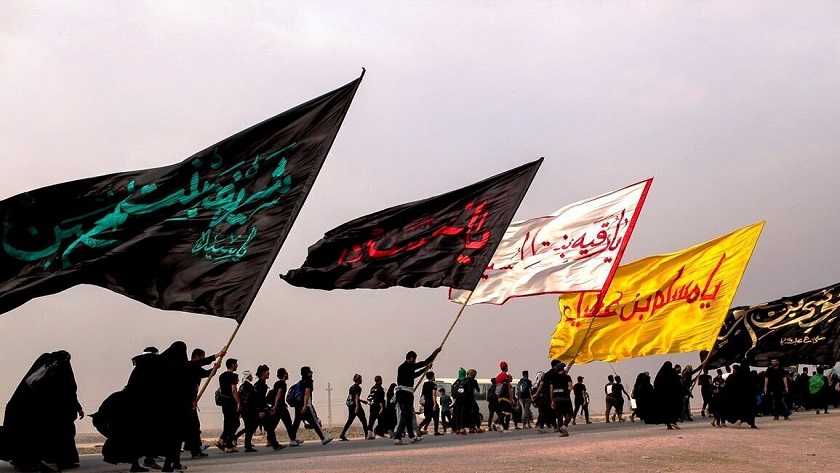
The caravan of prisoners of Karbala returned to this holy land forty days after Ashura, and Shiites also know this day as Arbaeen and mourn it. The number forty is a mysterious and important number among numbers. In the Qur'an and hadiths, there are various references to this number, from the total of which we can conclude that the number forty is a symbol of evolution and maturity and the beginning of a new stage. The Qur'an says in Surah A'raf, verse 142: "And We made a promise with Moses for thirty nights; Then we completed it with ten nights, In this way, the vow of his Lord ended with forty nights." In this verse, God considers a period of forty days necessary for the revelation of the Torah to Moses, Just as his people, after refusing to enter Jerusalem, were condemned to wander on earth for forty years, so that during this time they would realize their mistake and repent.
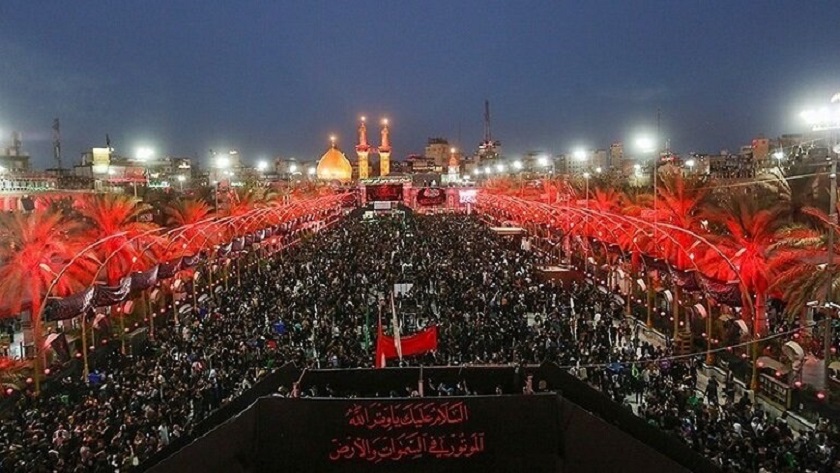
In Islam, the age of forty is considered the age of intellectual maturity of a human being, as Prophet Muhammad (PBUH) was chosen to be a prophet at the age of forty. He said in a beautiful hadith about sincerity in action: "Whoever makes 40 days (faith and deeds) pure for God, God will enlighten his heart with fountains of wisdom." This enlightening hadith has become an important guide for mystics and followers of the path of happiness to try to purify their actions and words for God within 40 specific days in order to reach the highest spiritual levels. Another famous hadith of by Prophet, in which the number forty is highlighted, is that: "Whoever of my Ummah memorizes forty hadiths needed by the people in matters of religion, God will raise him up as a jurist and a scholar on the Day of Judgment." This valuable speech has caused dozens of books containing explanations of forty hadiths to be written by great religious scholars such as Imam Khomeini (RA), the founder of the Islamic Republic of Iran.
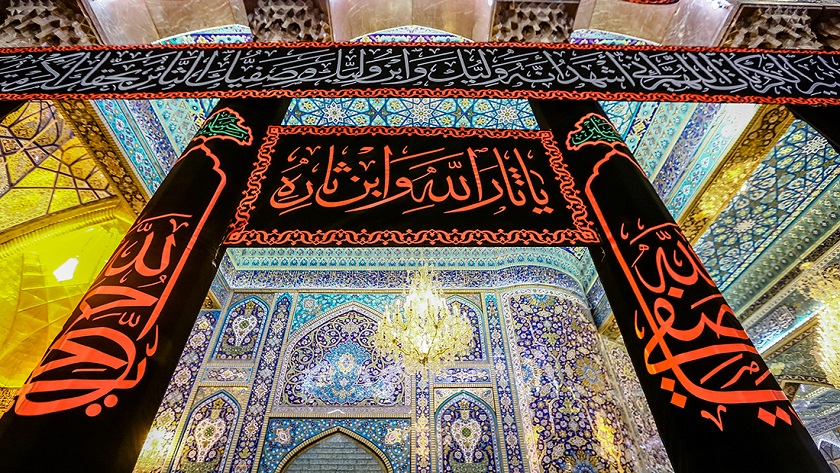
As it has been said, Arbaeen every year is a day of mourning for the Ahl al-Bayt (AS) and pilgrimage of Imam Hussain (AS) in Karbala. Basically, commemorating the memory and martyrs, in any way, including visiting their shrines, is to keep alive their proud path in the fight against oppression and injustice. Hussain bin Ali (AS), is the honorable descendant of the Messenger of God (PBUH), who was martyred in a heinous and uncouth manner along with his brave and righteous companions, then visiting his shrine is important and rewarding. For this reason, the honorable imams always emphasized on this pleasant and effective action.
Related news: Arbaeen March kicks off in Tehran
In this regard, Imam Sadiq says: "Whoever wants to be near his Prophet, Ali (AS) and Fatima (AS), should not leave Imam Hussain's pilgrimage." But it is interesting to know that mourning on the 40th day of martyrdom is only for Imam Hussain (AS) and for the death of the Prophet and the martyrdom of none of the imams from his generation and other divine saints, holding such an important ceremony is not recommended. Therefore, without a doubt, there is special wisdom and expediency in this passionate ceremony. One of the most important reasons is the fateful and divine uprising of Imam Hussain (AS) in order to revive Islam and expose the crimes and corruption of the Umayyad government.
Related news: Arbaeen march, the most magnificent religious gathering in the world
In the text of various pilgrimages of Seyyed al-Shaheda, this issue is stated with different titles. In a narration from Imam Sadiq (AS), it is said: "When the day of Arbaeen has arrived, know why we are submissive in front of Hussain bin Ali (AS), Hussain bin Ali (AS) gave advice, lectured, preached, wrote letters, gave orders, but it didn't work. When he saw that he had no choice, and only sacrifice was needed, he also gave blood in the way of God.
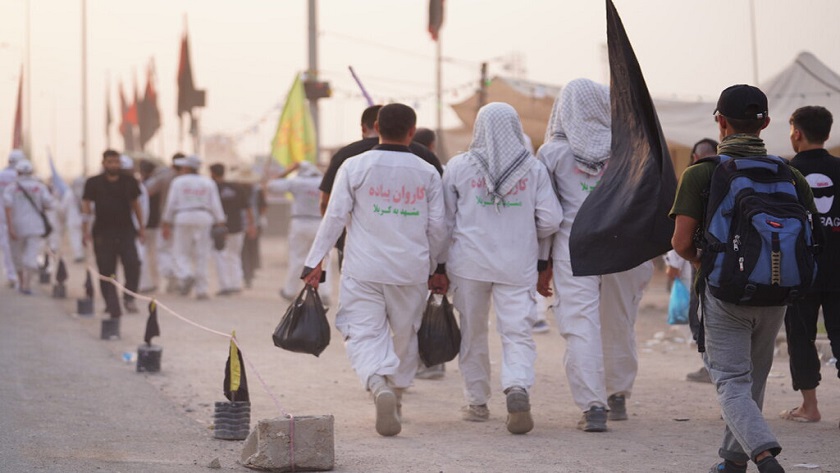
Shaykh Tusi, one of the greatest scholars of the Islamic world, considers the reason for holding the Arbaeen ceremony to be the burial ceremony and the mourning ceremony and lamenting and renewing the memory of the martyrdom of Hussain (AS) in Ashura by his eminence family (AS). He also refers to the narration of Imam Sadiq, in which it is stated that after Ashura, the sky cried blood for Hussain (AS) for forty days and the earth mourned in darkness for forty days. And the sun wept for forty days with its eclipse and redness, and the angels of heaven wept for forty days. From this point of view, it can be said that the family of Imam Hussain (AS) by organizing the mourning ceremony and commemorating the martyrs of Karbala in Arbaeen, once again revived their ideals and goals and did not allow the passage of time to wane them.
Ayatollah Khamenei considers Arbaeen as the revival of Ashura's message
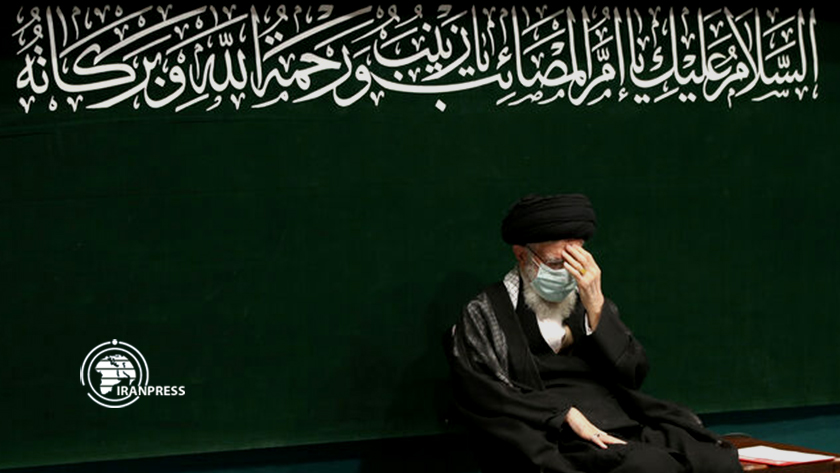 Students hold Arbaeen mourning before the Leader
Students hold Arbaeen mourning before the Leader
Ayatollah Khamenei, the leader of the Islamic Revolution of Iran, completes this view and says: "Basically, the significance of Arbaeen is that on this day, with the divine planning of the Prophet's (PBUH) family, the memory of Imam Hussain's movement was immortalized forever and the path to truth was laid out." If the survivors of various events such as the martyrdom of Hussain bin Ali (peace be upon him) in Ashura, do not commit to preserving the memory and the truth of martyrdom, future generations will not benefit much from the achievement of this holy martyrdom."
Ayatollah Khamenei believes that during the forty days after the martyrdom of Hussain bin Ali (AS) and his honorable companions in Karbala, Imam Sajjad (AS), Hazrat Zainab (AS) and other members of the Imam's family conveyed the noble and divine message of this great movement to the ears of all people. And if it were not so, the sacrifices of the martyrs of Karbala would not have much effect on the people and future generations. So, Arbaeen is important because this emotional and critical stage had largely come to fruition by then. With this definition, considering the position of the number forty in Islamic culture and the great importance of the Ashura uprising in the revival of the Islamic religion, it is clear that Arbaeen plays an important role in introducing and promoting this enlightened movement.
Read More:
Students hold Arbaeen mourning before Leader
Ashkan Salehian

